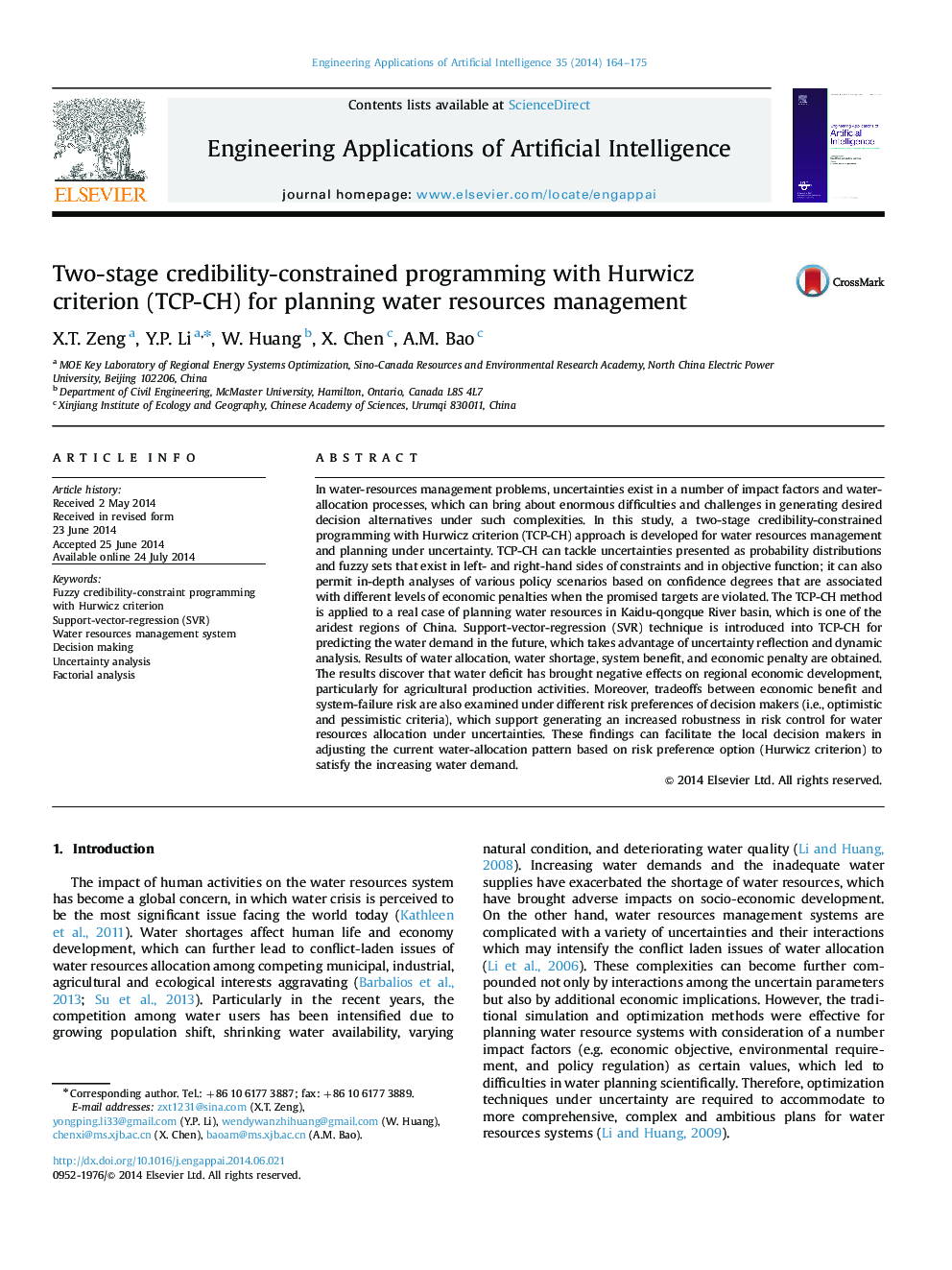| Article ID | Journal | Published Year | Pages | File Type |
|---|---|---|---|---|
| 380580 | Engineering Applications of Artificial Intelligence | 2014 | 12 Pages |
In water-resources management problems, uncertainties exist in a number of impact factors and water-allocation processes, which can bring about enormous difficulties and challenges in generating desired decision alternatives under such complexities. In this study, a two-stage credibility-constrained programming with Hurwicz criterion (TCP-CH) approach is developed for water resources management and planning under uncertainty. TCP-CH can tackle uncertainties presented as probability distributions and fuzzy sets that exist in left- and right-hand sides of constraints and in objective function; it can also permit in-depth analyses of various policy scenarios based on confidence degrees that are associated with different levels of economic penalties when the promised targets are violated. The TCP-CH method is applied to a real case of planning water resources in Kaidu-qongque River basin, which is one of the aridest regions of China. Support-vector-regression (SVR) technique is introduced into TCP-CH for predicting the water demand in the future, which takes advantage of uncertainty reflection and dynamic analysis. Results of water allocation, water shortage, system benefit, and economic penalty are obtained. The results discover that water deficit has brought negative effects on regional economic development, particularly for agricultural production activities. Moreover, tradeoffs between economic benefit and system-failure risk are also examined under different risk preferences of decision makers (i.e., optimistic and pessimistic criteria), which support generating an increased robustness in risk control for water resources allocation under uncertainties. These findings can facilitate the local decision makers in adjusting the current water-allocation pattern based on risk preference option (Hurwicz criterion) to satisfy the increasing water demand.
